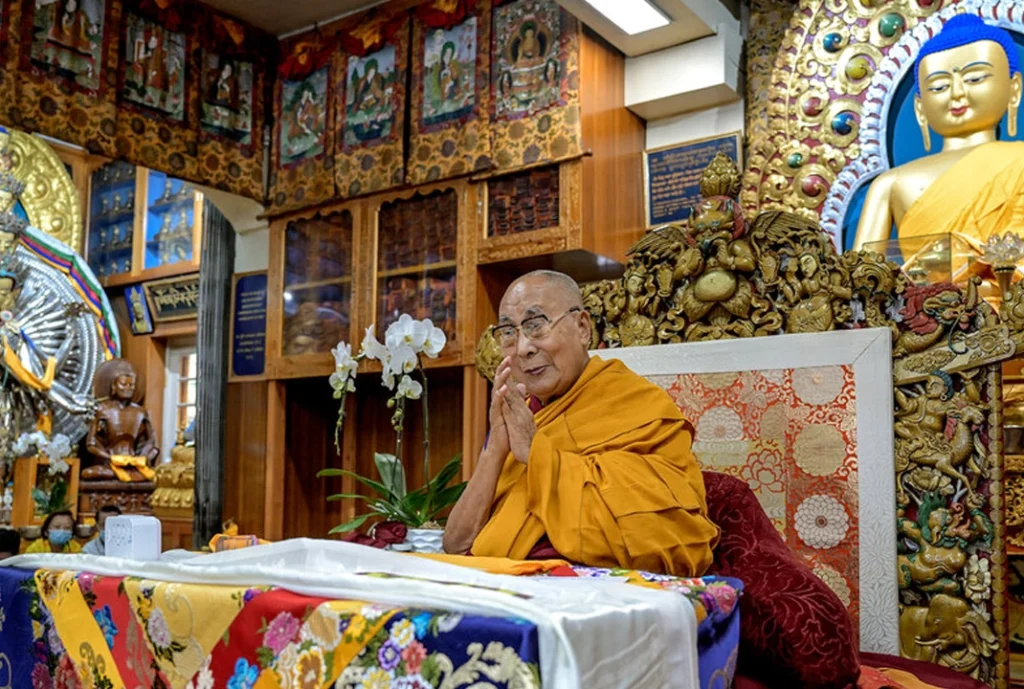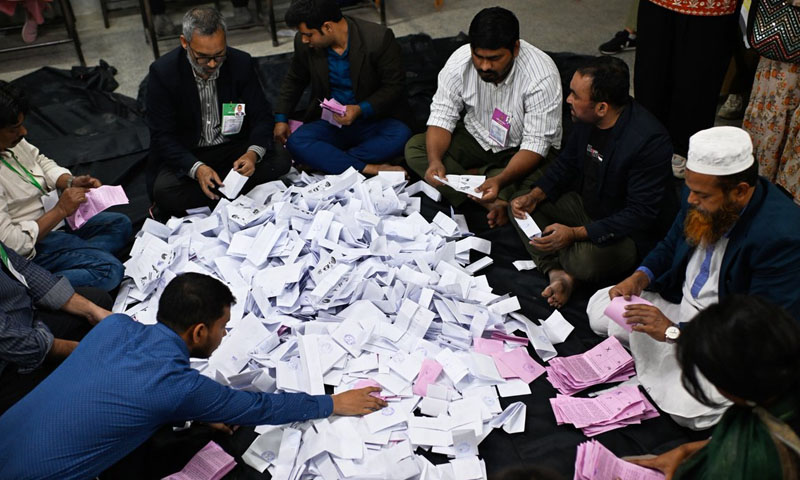- Web Desk
- 29 Minutes ago
How will the Dalai Lama’s successor be chosen?
-

- Reuters
- Jun 30, 2025

DHARAMSHALA: The choice of a successor to the Dalai Lama, the spiritual head of Tibetan Buddhists, is a matter of riveting interest not only for followers of his religion, but also China, India, and the United States, for strategic reasons.
The Nobel peace laureate, who turns 90 on Sunday, is regarded as one of the world’s most influential figures, with a following extending well beyond Buddhism.
HOW WAS HE CHOSEN?
Tibetan tradition holds that the soul of a senior Buddhist monk is reincarnated after his death.
The 14th Dalai Lama, born as Lhamo Dhondup on July 6, 1935, to a farming family in northeastern Tibet, was identified as such a reincarnation when he was just two years old.
A search party sent by the Tibetan government made the decision on the basis of several signs, such as a vision revealed to a senior monk, the Dalai Lama’s website says. The searchers were convinced when the toddler identified belongings of the 13th Dalai Lama with the phrase, “It’s mine, it’s mine”.
In the winter of 1940, Lhamo Thondup was taken to the Potala Palace in Lhasa, the capital of today’s Tibet Autonomous Region, and officially installed as the spiritual leader of Tibetans.
HOW WILL HIS SUCCESSOR BE CHOSEN?
In his book “Voice for the Voiceless”, released in March 2025, the Dalai Lama said his successor would be born outside China.
The Dalai Lama has lived in exile in northern India since 1959, after fleeing a failed uprising against the rule of Mao Zedong’s Communists.
He wrote that he would release details about his succession around the time of his 90th birthday.
The Tibetan parliament-in-exile, based in the Himalayan town of Dharamshala, like the Dalai Lama, says a system has been established for the exiled government to continue its work while officers of the Gaden Phodrang Foundation will be charged with finding and recognising his successor.
The current Dalai Lama set up the foundation in 2015 to “maintain and support the tradition and institution of the Dalai Lama” with regard to his religious and spiritual duties, it says on its website. Its senior officers include several of his aides.
WHAT DOES CHINA SAY?
China says its leaders have the right to approve the Dalai Lama’s successor, as a legacy from imperial times. A selection ritual, in which the names of possible reincarnations are drawn from a golden urn, dates to 1793, during the Qing dynasty.
Chinese officials have repeatedly said the reincarnation of the Dalai Lama should be decided by following national laws that decree use of the golden urn and the birth of reincarnations within China’s borders.
But many Tibetans suspect any Chinese role in the selection as being a ploy to exert influence on the community.
It is inappropriate for Chinese Communists, who reject religion, “to meddle in the system of reincarnation of lamas, let alone that of the Dalai Lama,” the Buddhist leader has said.
In his book, he asked Tibetans not to accept “a candidate chosen for political ends by anyone, including those in the People’s Republic of China,” referring to the country by its official name.
Beijing brands the Dalai Lama, who won the Nobel Peace Prize in 1989 for keeping alive the Tibetan cause, as a “separatist” and prohibits displays of his picture or any public show of devotion towards him.
In March 2025, a Chinese foreign ministry spokesperson said the Dalai Lama was a political exile with “no right to represent the Tibetan people at all”.
China denies suppressing the rights of the Tibetan people, and says its rule ended serfdom in, and brought prosperity to, a backward region.
Also read: Tibetans face up to uncertain future as Dalai Lama turns 90




